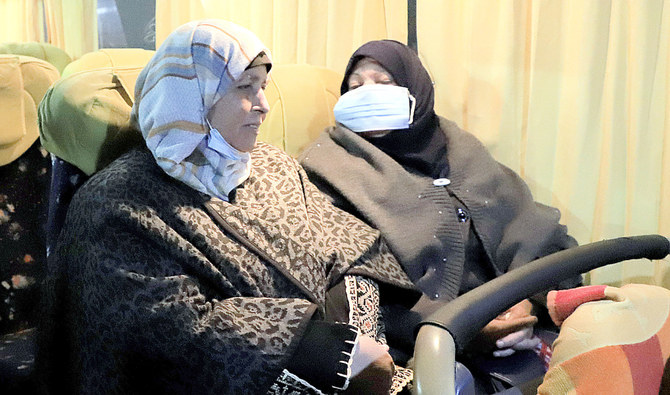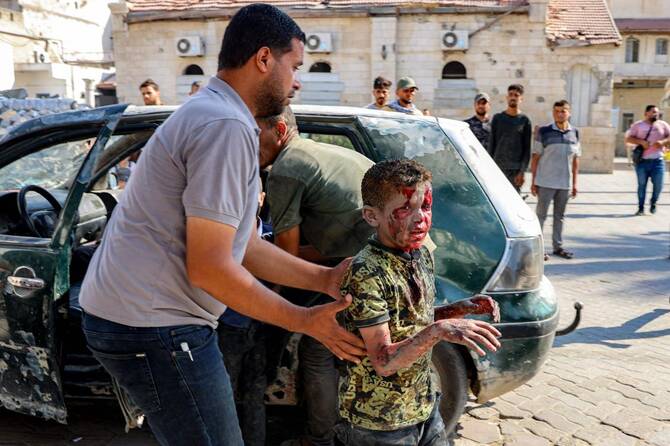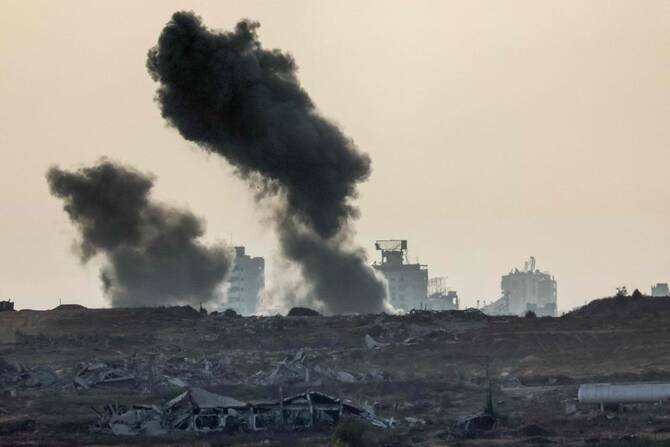Hazem Balousha
GAZA CITY: As she gets older, the Palestinian Fayza Abu Al-Qumboz becomes more afraid of dying before she can once more embrace her son, Majed, who has been in Israeli prisons for 16 years.
On April 17, when Palestinians commemorate Prisoners’ Day Abu al-Qambuz, 73, along with dozens of mothers of prisoners in Gaza who have been denied access to their children in Israeli prisons for nearly 6 years, feels more grief.
The last time Abu Al-Qambuz visited her son, Majed, in Nafha prison was in 2016.
Israeli forces arrested Majed, his two brothers, his brother-in-law and about 40 members of his family and neighbors during their invasion of Al-Shojaeya neighborhood, east of Gaza City, in August 2006. They released most of them at different times, but sentenced Majed to 19 years in prison, on charges of belonging to the military wing of Hamas.
Majed’s mother said that she was able to visit him for the first time in 2012 after the so-called “dignity strike” that the prisoners held. She went in accompanied by his daughter Zina and his son Youssef, and recalls with pain that visit: “Majed was shocked and in disbelief that Youssef, who had not yet been born at the time of his arrest, was brought to the prison at the age of six, while his feelings were more emotional towards Zina, whom he had last seen as a baby.”
Although human rights institutions have obtained a judicial decision to re-allow visits to prisoners after they were stopped during the pandemic, the decision excluded about 70 Palestinian prisoners belonging to Hamas and Islamic Jihad.
For many years, Majed’s mother participated in weekly activities in front of the headquarters of the International Committee of the Red Cross in Gaza in solidarity with the prisoners, but illness and the inability to walk have prevented her from participating recently. “I am afraid to die before seeing Majed free,” she said.
Various institutions and organizations organize special events on Prisoners’ Day in support of Palestinian detainees in Israeli prisons.
Israel prevents visits to Hamas and Islamic Jihad prisoners in an attempt to pressure Hamas to release four Israelis it has been holding.
Najat Al-Agha, longs for the embrace of her son Diaa, who has been in Israeli prisons for 30 years.
Diaa, now aged 46, belongs to the Fatah movement led by President Mahmoud Abbas. He was supposed to be released in March 2014, under an agreement that paved the way for the resumption of Palestinian-Israeli negotiations, but Israel did not abide by it.
Despite the past three decades, which have exhausted her health by moving between visiting prisons and participating in activities in support of prisoners, Al-Agha, 71, is still clinging to the hope of freedom for her son.
“The occupation forces arrested Diaa, who was 16 years old, and sentenced him to life imprisonment, and since then I miss the true joy of any occasion. Even food no longer has any flavor due to his long absence behind bars,” she said.
She was one of the few mothers who were able to visit their sons in prisons last month. “Israel prevented me from visiting him for five years, and although I was sick on the day scheduled for the visit, I told myself I will visit him even if I had to crawl. My wish is to kiss and cuddle him before I die.”
About 5,000 Palestinian prisoners are held in the Israel’s prisons, including about 220 prisoners from Gaza, most of who were arrested before the signing of the Oslo agreement between the Palestine Liberation Organization and Israel in 1993.






















